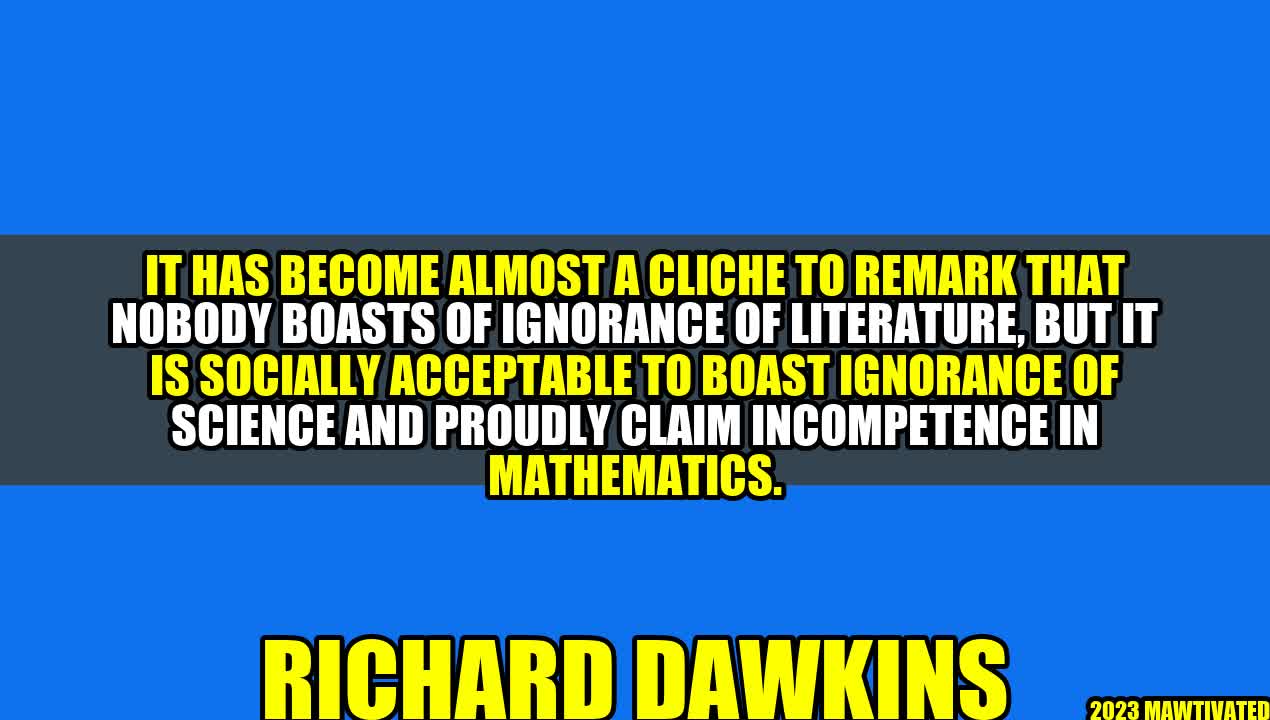The Dangers of Ignorance: A Call to Embrace Science and Mathematics

“It has become almost a cliche to remark that nobody boasts of ignorance of literature, but it is socially acceptable to boast ignorance of science and proudly claim incompetence in mathematics.” – Richard Dawkins
Imagine a world where people believed that the earth was flat, thunder and lightning were caused by angry gods, and diseases were a punishment from the divine. This world existed not too long ago, and hundreds of years of scientific advancement have given us a way out of the darkness. However, even in the 21st century, ignorance still reigns supreme over knowledge.
The Cost of Ignorance
The cost of this ignorance is high—millions of people are susceptible to pseudoscientific claims, conspiracy theories, and misinformation campaigns. This ignorance is reflected in public policy, where major decisions are made on the basis of sentiment rather than objective data. The pandemic has made it clear that a lack of public scientific literacy can have disastrous consequences.
The Value of Science and Mathematics
It is crucial that we recognize the value of science and mathematics, not just in the abstract, but in the tangible benefits they provide us with. From life-saving medicines to the internet, from space exploration to renewable energy, science and mathematics permeate every aspect of modern life and make it possible. Without scientific advancements, we would not have come as far as we have today. It is time we start to acknowledge the value they bring to our lives.
The Dawkins Perspective
Richard Dawkins, the famous evolutionary biologist and author, has been a vocal proponent of science and mathematics education. In his book, The Blind Watchmaker, he says, “We are privileged to live in a time when we can actually witness the unfolding of the deepest mysteries of nature.” Dawkins emphasizes that our ability to understand the natural world is not only awe-inspiring but also empowering. He makes a clear case that scientific literacy is essential for any society that hopes to achieve progress.
Examples of Progress
- Global life expectancy has increased by more than 20 years in the last 50 years, largely due to scientific advancements in medicine and public health.
- In 2019, a team of scientists captured the first-ever image of a black hole, something that until then had been only a theory.
- The development of renewable energy sources such as solar panels and wind turbines is helping to mitigate climate change.
The Need for Action
If we are serious about progress and making our world a better place, then we have no choice but to take immediate action to improve scientific literacy. Here are three steps we could take:
- Start Early: Include science and mathematics in early education programs to build a strong foundation and foster a love for discovery and exploration.
- Engage in Science Communication: Scientists need to explain their findings in ways that are accessible and easy to understand, so that the public can appreciate the importance of their work.
- Promote Scientific Thinking: We need to encourage critical thinking, skepticism, and honesty in the face of facts, as well as a respect for empirical evidence, to create a culture that values science and rationality.

Curated by Team Akash.Mittal.Blog
Share on Twitter
Share on LinkedIn